By Hend Kortam and Rana Muhammad Taha
In December 2013, the serene Marriott Hotel in Cairo’s posh island of Zamalek was the site of the arrest of three journalists working for Qatari network Al Jazeera.
The ensuing developments in the story made headlines worldwide and attracted international attention, mostly to Egypt’s media climate.
An Egyptian court is set to rule on the three journalists, accused of spreading false news, on Thursday.
“I was an Australian journalist in Cairo on a short assignment, doing my job as an independent reporter with all the balance, fairness and integrity I could muster,” said Peter Greste, one of the three journalists arrested.
“I have no affiliations with any particular political or religious group in Egypt or anywhere else for that matter,” Greste said, in an emailed response to Aswat Masriya’s questions.
Greste and colleagues Baher Mohamed and Mohamed Fahmy would spend no less than 400 days, each in an Egyptian jail, before their release in February 2015 on different days and under different conditions.
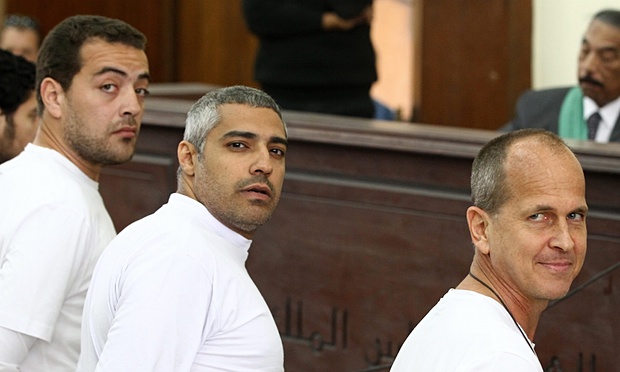
The trio was put on trial and initially sentenced to prison in June 2014. However, a higher court, the Court of Cassation ordered their retrial in January of this year.
Greste said he respected the judicial process and said he expects the court’s upcoming decision to demonstrate “that it is both fair and just.”
“It is hard to see how the court could come to any conclusion other than ‘Not Guilty’ for all involved,” Greste said.
Similarly, Shaaban Saeed, a lawyer representing the trio is optimistic.
He told Aswat Masriya over the phone that he expects the trio to be acquitted, adding that the court of cassation said the evidence used in the initial sentence convicting the defendants was “void”.
The lawyer believes they will be acquitted despite the fact that the conditions of each of the three journalists are very different.
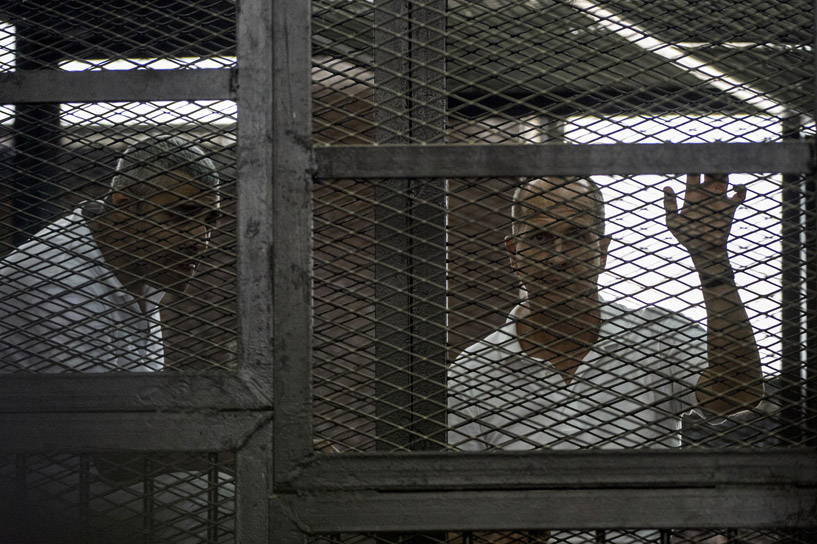
Greste was the first of the trio to be granted his freedom.
He was released on February 1 after spending 400 days behind bars. He was immediately deported as per a presidential decree, which allows the deportation of foreign defendants and convicts “whenever the [state’s] supreme interest necessitate so.”
Greste said he cannot attend the trial without violating his deportation order. The judge has said that if he does not attend the session, he will be tried in absentia. He offered to attend the trial using “video-link” but the Egyptian government has not responded to the offer.
“I want to make it clear that I am not trying to evade justice at all. I am in a Catch-22 situation,” Greste said.
Saeed believes the Australian journalist can attend the session.
He added that it is possible for the court to acquit Greste even if he is tried “in absentia”.
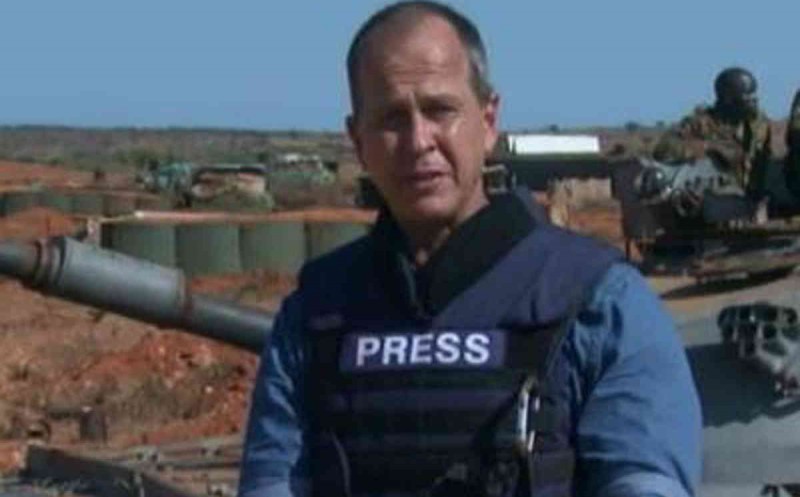
In the hopes of benefiting from the same decree which saw Greste released, Fahmy, who held a dual Egyptian-Canadian citizenship prior to the trial, revoked his Egyptian citizenship in February.
Yet, giving up his nationality did not speed up his release and both he and Mohamed were released as per a court order on the same day, February 12.
Should Fahmy be found guilty on Thursday, he will have to serve time in Egypt, unless the president issues a decree to deport him to Canada, Saeed said.
While all three journalists were found guilty of defaming Egypt and spreading false news, Mohamed, an Egyptian national, was sentenced to three more years for arms possession; a spent bullet casing.
Saeed said the court was supposed to send the bullet casing to the laboratory to determine its nature yet it never did. The lawyer said this indicates the court is leaning toward acquitting the defendant.

Though Thursday’s verdict will be fateful for the three defendants, Saeed said it “will not be a final ruling” as it can still be appealed at the court of cassation one last time.
Having spent well over a year in Egyptian prison, Greste said he has “no resentment or bad feelings toward Egypt.”
“It is an extraordinary country, going through a very difficult period of political transition. At some point in the future, when Egypt is more stable and settled, If [I] am exonerated, I would hope to work there again,” he said.
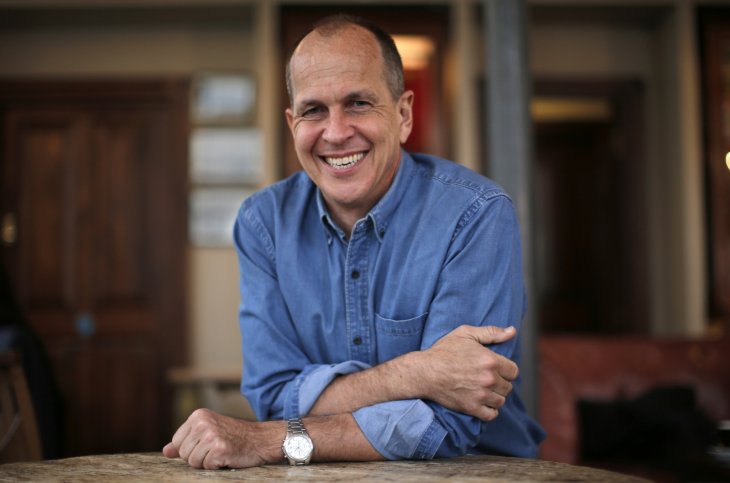



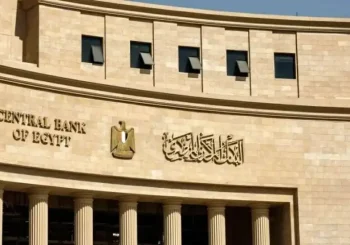
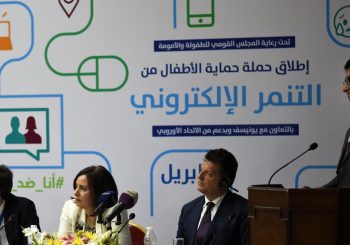

Comments (0)